Worried about the DJI drone ban? Fear not – here are the four best DJI alternatives
Four of the best non-DJI drones for various use cases
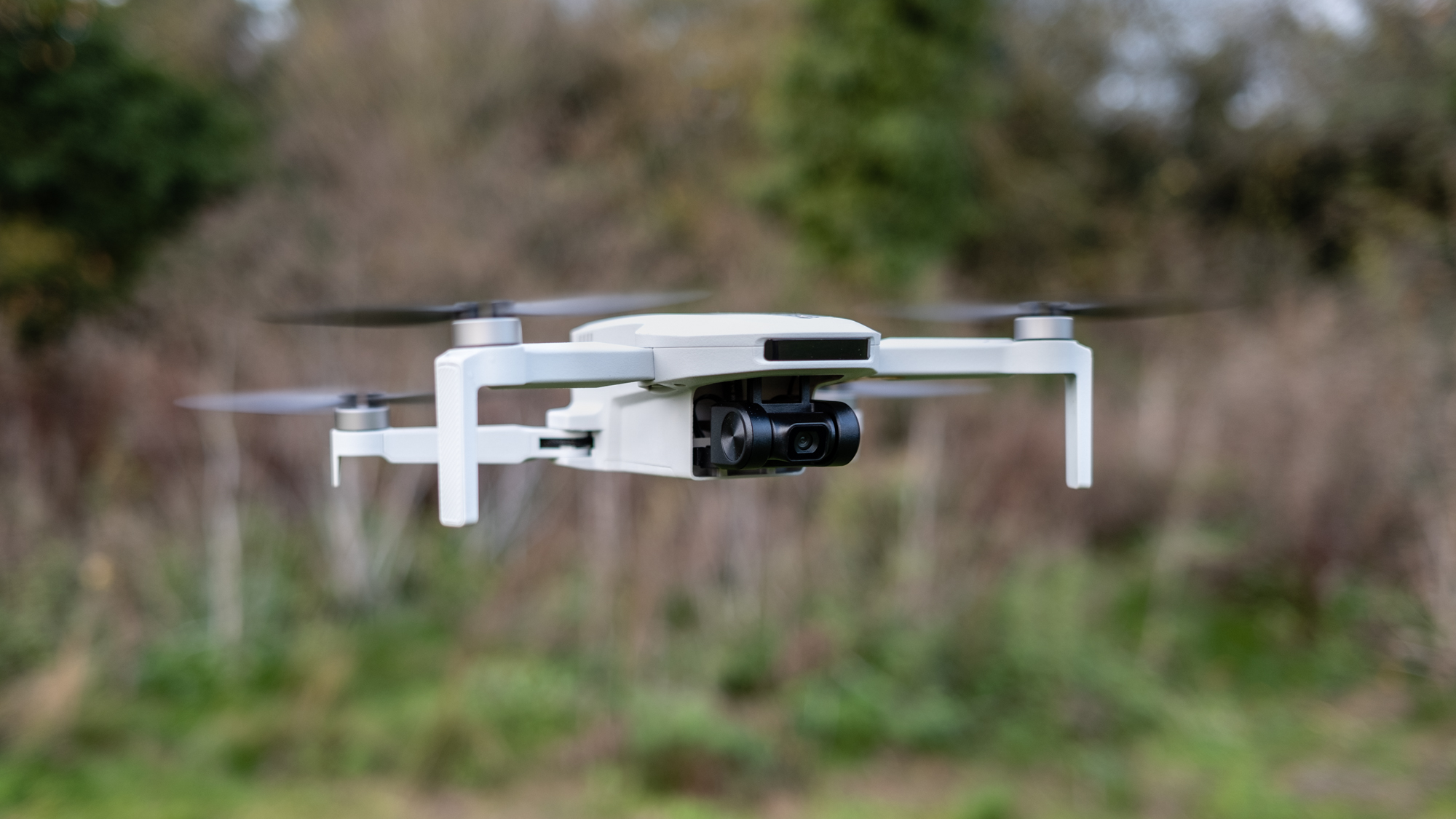
The United States House of Representatives recently passed the Countering CCP Drones Act, which makes a ban on the launch of new DJI drones in the US increasingly likely. If the Senate also passes the bill, and President Biden ultimately signs it into law, it could leave a massive drone-shaped hole across US stores now and moving forward, with DJI being market leader.
DJI commands a 70% global share of the drone market, and that number is even higher in the US. A ban on the release of new models, which could potentially be made retrospective to cover current models, would undoubtedly limit the options for US consumers. However, if the ban does come into force consumers won't be completely out of options, as there are a number of excellent drones from other brands that we've had plenty of hands-on time with.
We've hand-picked our four favorite DJI alternatives, covering various use cases and budgets, from our best drones and best beginner drones guides: guides created following countless hours of real-world testing.
Another option might come via the newly-formed Anzu Robotics, which has licensed DJI hardware to create a DJI Mavic 3 replica that would be acceptable on US soil following any DJI ban, because its own version is built outside of China and the software is developed in the US.
However, the Anzu Robotics model is triple the price of the Mavic 3 – a very real cost hit to US shoppers because of the ban – and although it's likely to be an excellent drone, we haven't included it in this list because we haven't reviewed it yet.
The best DJI alternative for most people
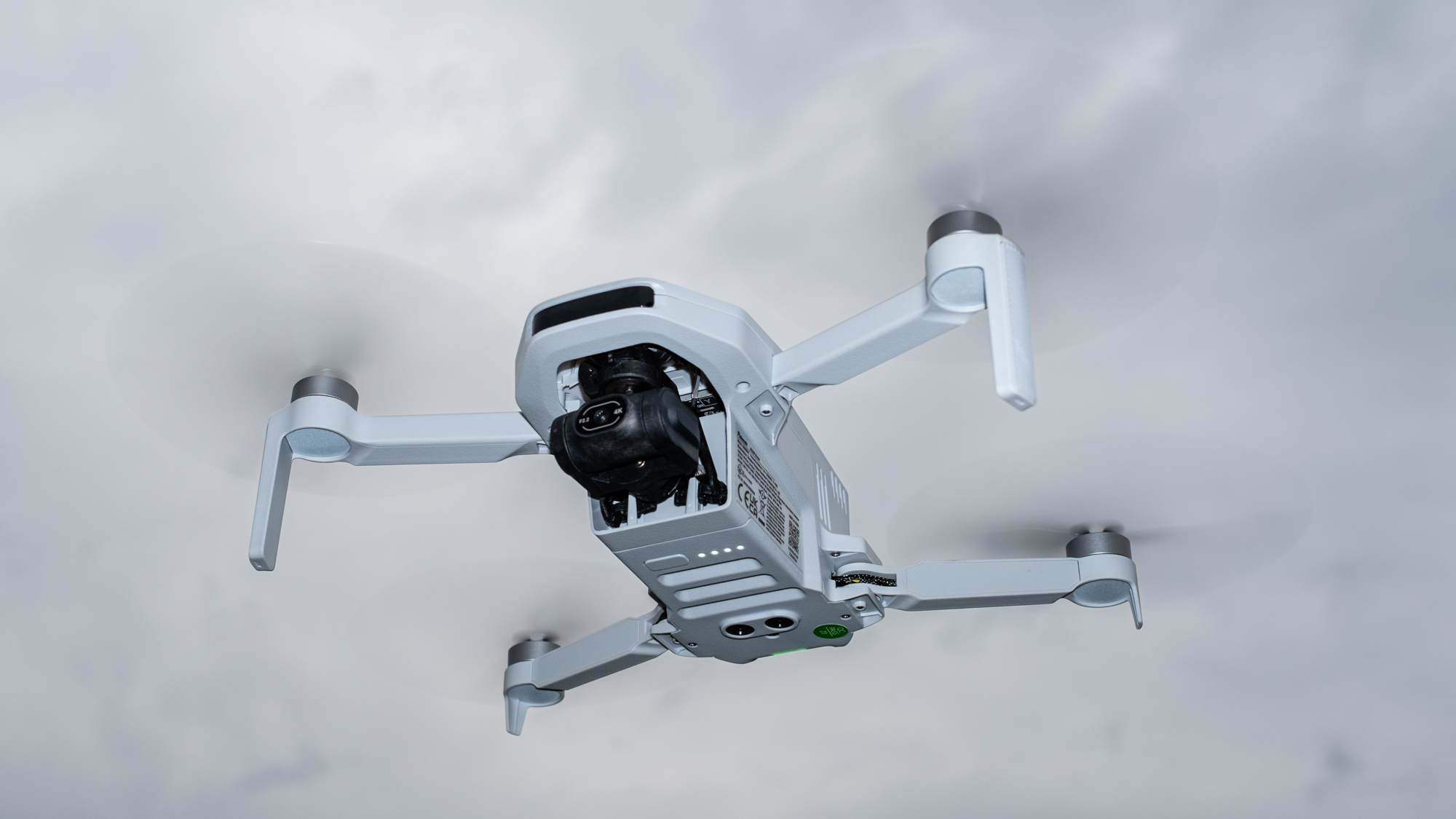
Specifications
Reasons to buy
Reasons to avoid
✅ You want the option of manual control: The Atom bucks the beginner drone trend by offering manual camera control in addition to auto, plus raw format photos as well as JPEG.
✅ You need smooth videos: A sub-$400 / £400 / AU$700 drone combo kit that packs a 3-axis mechanical gimbal to stabilize 4K 30fps video is rare.
❌ You want comprehensive safety features: Obstacle avoidance is typically found in pricier models only.
❌ You need ND filters: ND filters regulate shutter speed to let you capture smooth motion video in bright light, but there are no such filters available for the Atom.
Potensic followed up the Atom SE, with the excellent Atom, its best-ever drone, which we recommend as an alternative to the DJI Mini 2 SE and the DJI Mini 3 – it sits somewhere between those two models. The Mini 3 has long been our top pick for most people starting out, but the Atom is a compelling rival.
Addressing the Atom SE's shortcomings, the Atom is a superb beginner drone that "offers a performance that belies its low cost" according to our review. Highlights include manual camera control, raw 12MP photos and smooth 4K video up to 30fps thanks to a mechanical 3-axis gimbal; features that are rare in a drone at this price level. Other improvements over the Atom SE include better GPS accuracy, and intelligent flight features such as subject tracking.
Get daily insight, inspiration and deals in your inbox
Sign up for breaking news, reviews, opinion, top tech deals, and more.
As with any drone at this price point you don't get obstacle avoidance, and it's a shame that you can't buy ND filters – needed to regulate shutter speed for smooth motion video in bright light. However, the Atom is fantastic value, and a true DJI alternative. The fly more combo kit that adds two additional batteries, a fast-charging hub with a power adaptor, and a carry case in addition to the generous accessories that come in the standard kit, all for just $400 / £400 / AU$700, making it cheaper than the Mini 3.
Read our in-depth Potensic Atom review
The best DJI alternative for pros
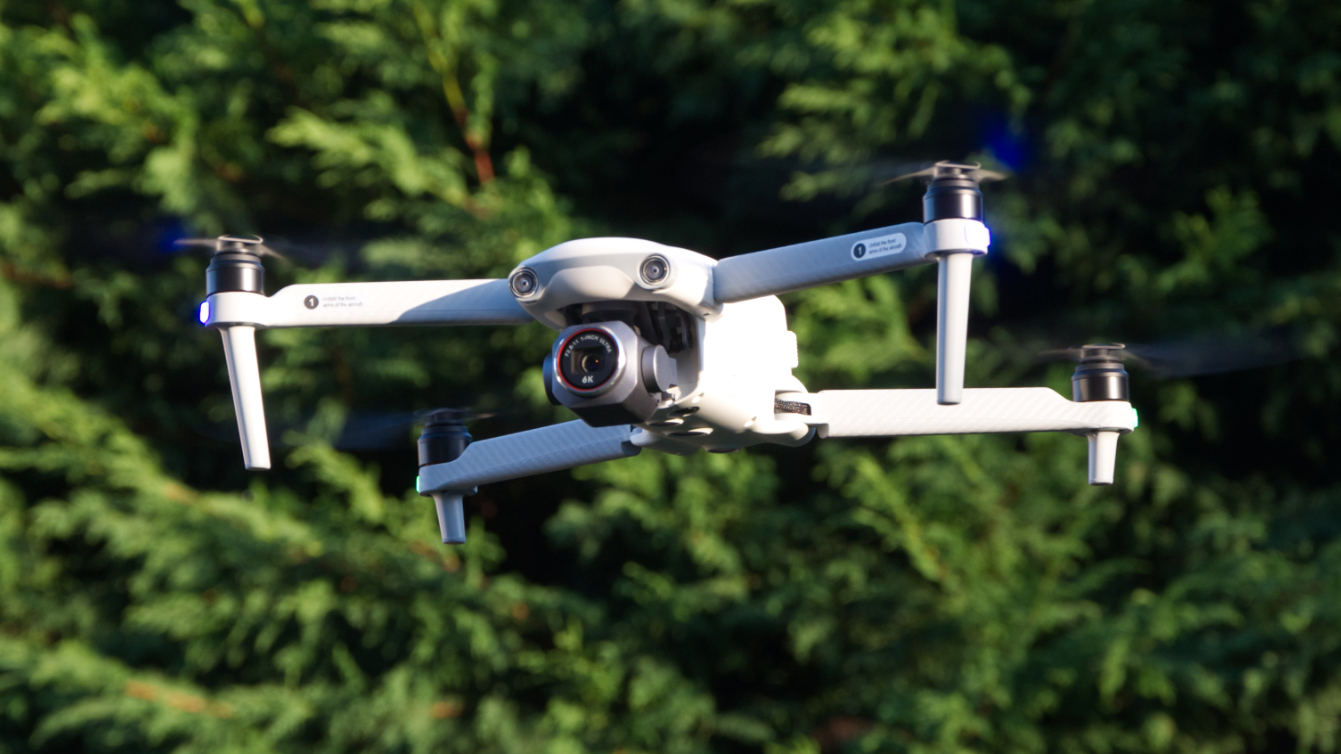
Specifications
Reasons to buy
Reasons to avoid
✅ You want aperture control: Aperture adjustment is a fantastic DJI Air 2S camera-beating feature.
✅ You want long flight times: The Evo Lite+ has up to 40 minutes of flying time, which is longer than rivals.
❌ You already have the DJI Air 2S: With a similar sensor and feature set, marginal upgrades don’t offer a compelling reason to switch to the Lite+.
❌ You plan to fly in built-up areas: Because it weighs more than 250g, the Lite+ is subject to more restrictions on where you can fly it.
Autel, another Chinese drone company, is a high-profile DJI rival, and its Evo Lite+ goes up against the DJI Air 2S – and, in some regards, betters it. The rival drones share similar camera specs, and the Evo Lite+ can shoot 5.4K video at 30fps using a 1-inch sensor – that 20MP sensor is larger than those beginner-level models, and produces cleaner images, especially in low light.
Its DJI Air 2S-beating features include an adjustable aperture (ranging from f/2.8 to f/11), meaning you can easily shoot in various lighting conditions. The Evo Lite+ also boasts longer flight times than the Air 2S – up to 40 minutes from a fully charged battery.
Discerning pros will miss D-Log color profiles for video, having to make do with standard color profiles, plus 10-bit video is lacking, and you'll have to buy the Evo Lite model to get features like 4-axis stabilization and the extra side sensors for complete obstacle avoidance. However, the Evo Lite+ has superior camera specs, and is an excellent option for aerial photographers. For the money, its 20MP sensor is probably the best available on a drone today.
Read our in-depth Autel Evo Lite+ review
Best DJI alternative for FPV
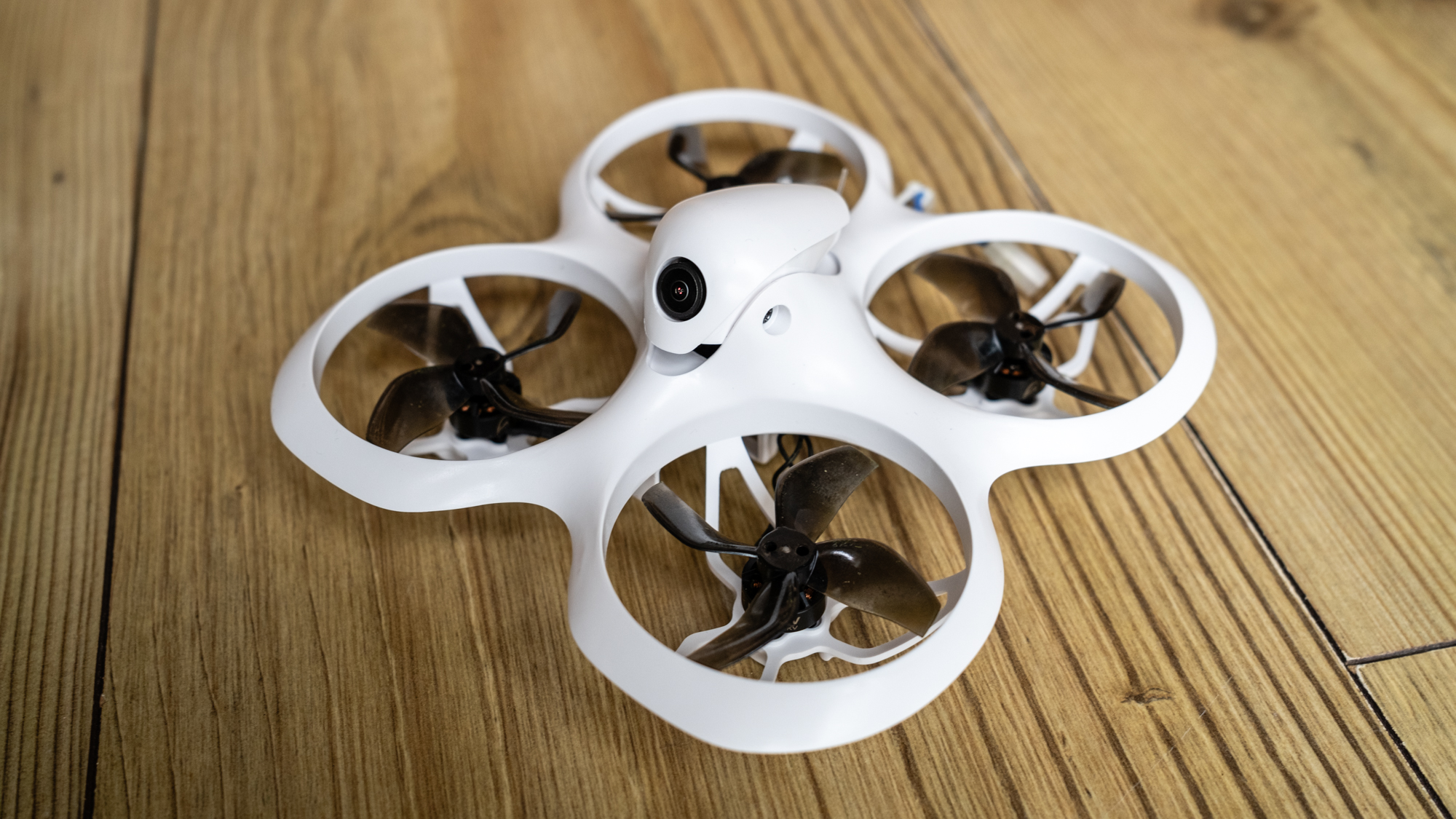
Specifications
Reasons to buy
Reasons to avoid
✅ You're a first-time FPV pilot: An ideal ready-to-fly FPV kit for those wanting to see what all the FPV drone fuss is about.
✅ You want the high-octane drone experience: There's a learning curve, but FPV drones are hugely fun and exciting once you've acquired the skills.
❌ You're an aspiring aerial photographer: FPV drones are for piloting thrills, not photography.
❌ You get motion sick: If you typically suffer from motion sickness, FPV drones in general might not be for you.
We think the BetaFPV Cetus X Kit is a top choice for first-time FPV pilots. It's bundled with everything you need for first-person flight, including a transmitter and a basic set of goggles. It's a more powerful model than BetaFPV's own Cetus Pro, boasting multiple flight modes and speed settings that support your growth as FPV drone pilot, enabling you to try new tricks as your skills improve. Provided you have the stomach to stick it out without succumbing to motion sickness, the Cetus X will reward you with an immersive flying experience.
We found it took time and patience to master the Cetus X's Manual/Acro mode, crashing the FPV drone many times. This is par for the course when flying FPV drones, though, and the Cetus X has a frame that's built to withstand impacts, although it did crack in our tests. We also found the video feed prone to break-up and interference.
The Cetus X has a built-in DVR to record flight feeds, but this isn’t a drone for stills photography. Battery life is a meager five minutes, but with enough power to perform simple freestyle tricks and everything in the box to get airborne, this is our favorite FPV kit for first-timers.
Read our in-depth BetaFPV Cetus X review
The best DJI alternative selfie drone
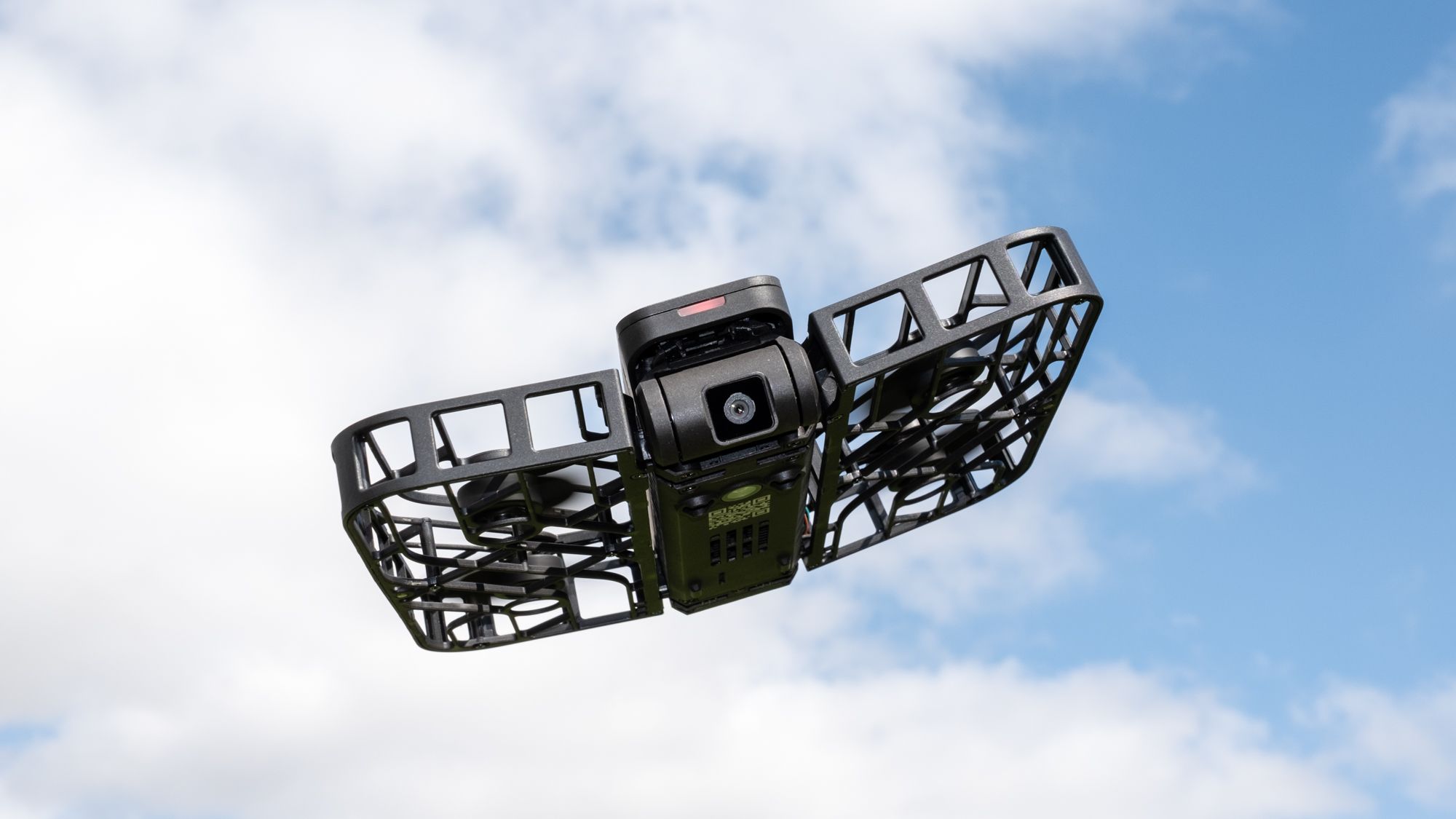
Specifications
Reasons to buy
Reasons to avoid
✅ You're a drone newbie: It's possible to get airborne in a matter of seconds, while automated subject tracking does the hard work for you.
✅ You want next-level selfies: Smooth 2.7K video and well-implemented tracking features combine for next-level selfies.
❌ You want to master drone skills: The HoverAir X1 is mainly an automated drone – if you want manual control there are better alternatives.
❌ You want good value: DJI's drones offer better bang for buck. However, if the DJI ban comes into effect the HoverAir X1 could suddenly become a decent-value option.
If you're completely new to drones, and want a fun option to get started with, then the HoverAir X1 is an excellent choice. It's a bit like a selfie stick on steroids, offering decent 12MP photos and 2.7K video resolution, super-smooth video footage, and well-implemented subject tracking.
The HoverAir X1 is a tiny drone that weighs just 4.4oz / 125g. It has cage-like propellor guards, and it's ready to go from unboxing in a matter of seconds. It'll take off and land from the palm of your hand, and packs away to tiny proportions when you're done.
If you want an easy drone with automated and reliable subject tracking, the X1 ticks the boxes. Its flight times from a full charge are under 10 minutes – that's a little underwhelming, while the X1 is a tad on the pricey side for what you get, with alternatives like the DJI Mini 4K offering better value. However, with DJI facing a ban, the X1 might suddenly become an excellent value option.
Read our in-depth HoverAir X1 review

Tim is the Cameras editor at TechRadar. He has enjoyed more than 15 years in the photo video industry with most of those in the world of tech journalism. During his time as Deputy Technical Editor with Amateur Photographer, as a freelancer and consequently editor at Tech Radar, Tim has developed a deeply technical knowledge and practical experience with cameras, educating others through news, reviews and features. He’s also worked in video production for Studio 44 with clients including Canon, and volunteers his spare time to consult a non-profit, diverse stories team based in Nairobi. Tim is curious, a keen creative, avid footballer and runner, and moderate flat white drinker who has lived in Kenya and believes we have much to enjoy and learn from each other.